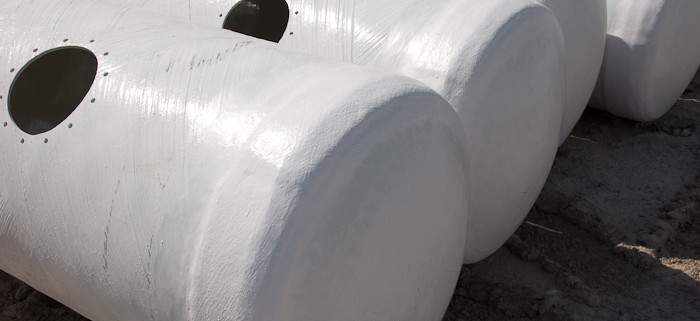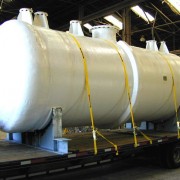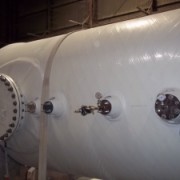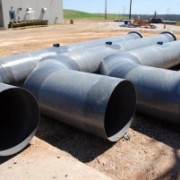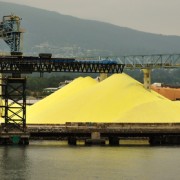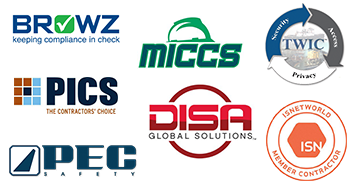FRP for Ferric Chloride Tanks and Waste Water Treatment
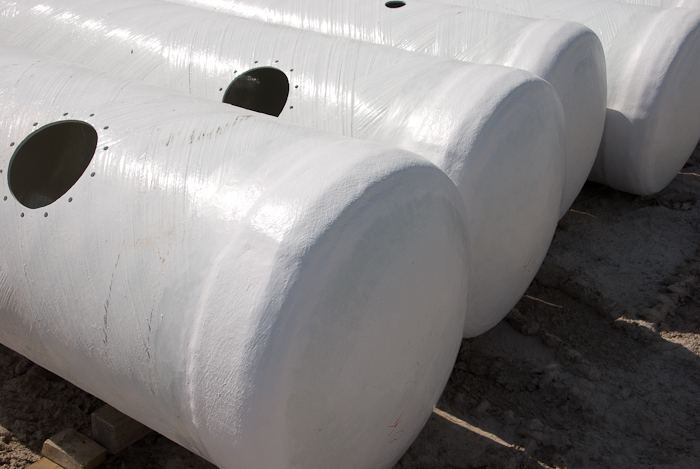 Ferric chloride or FeCl3, is an industrial scale commodity chemical compound that has many important industrial applications. When dissolved in water, FeCl3 undergoes hydrolysis and gives off heat in an exothermic reaction. The resulting brown, acidic, and corrosive solution is used as a flocculant in sewage treatment and drinking water production, and as an etchant for copper-based metals in printed circuit boards.
Ferric chloride or FeCl3, is an industrial scale commodity chemical compound that has many important industrial applications. When dissolved in water, FeCl3 undergoes hydrolysis and gives off heat in an exothermic reaction. The resulting brown, acidic, and corrosive solution is used as a flocculant in sewage treatment and drinking water production, and as an etchant for copper-based metals in printed circuit boards.
Ferric chloride is used in many industrial and sanitary wastewater treatment applications, due to its high efficiency, effectiveness in clarification, and utility as a sludge dewatering agent. Ferric chloride is sought after in waste water treatment because it is a superb flocculating and precipitating agent that can absorb colloids, clays, and bacteria. Furthermore, ferric chloride is also one of the few water treatment chemicals that can sequester odors.
FRP and Ferric Chloride
Fiberglass Reinforced Polymers (FRP) have been used in the construction of corrosion resistant equipment in a multitude of applications including hydrochloric acid, sulfuric acid, caustic soda, and ferric chloride. Our FRP offer superior corrosion resistance for ferric chloride at all concentrations. As such, FRP corrosion resistant tanks are ideal for transportation, handling, and processing of ferric chloride and other corrosive materials. Where steel and other alloys fall short, FRP endures and outperforms conventional materials with lower maintenance costs, longer life cycles, and overall durability.
In the waste water industry, FRP are typically used for clarifiers, basins, tanks, reservoirs, filters(e.g. trickling, roughing, bio), scum baffles, weirs, flumes (e.g. Cutthroat, Parshall, Palmer-Bowlus), influent/effluent channels, gates, stop logs, skimmers and manholes, filter media support grids, elevated platforms and walkways, odor covers, trench and vault covers —among much else.
In the past, ferric chloride tanks were primarily constructed out of rubber lined steel or plastic lined steel, however FRP are now considered a cost-effective alternative that offer many benefits. We offer exceptional FRP that perform well in waste water environments. Our composites are lightweight, high strength, corrosion/rot resistant, will not swell, or take on moisture, and can be retrofitted to existing municipal and industrial water and wastewater systems.

